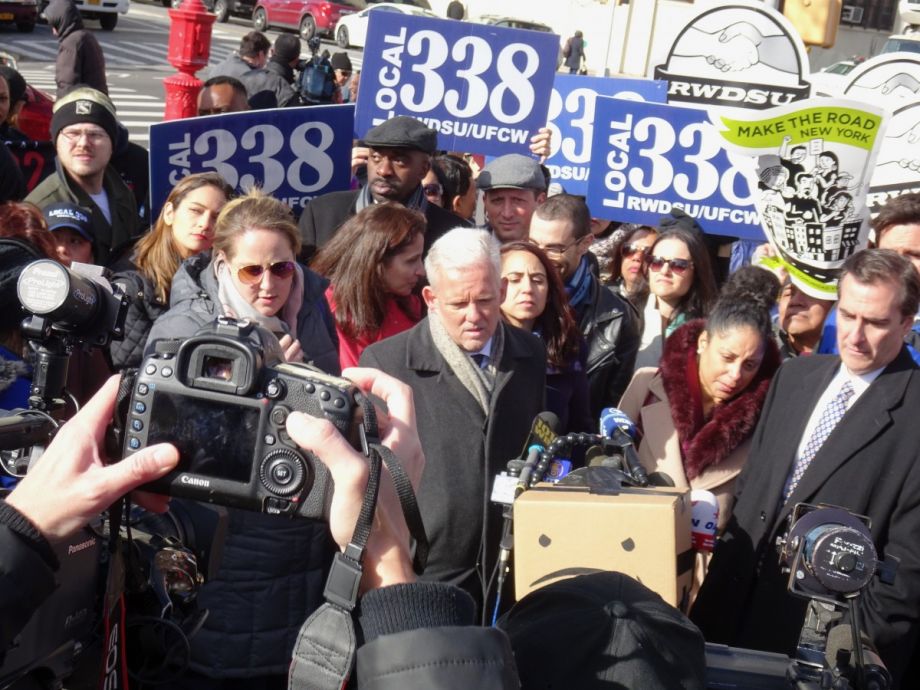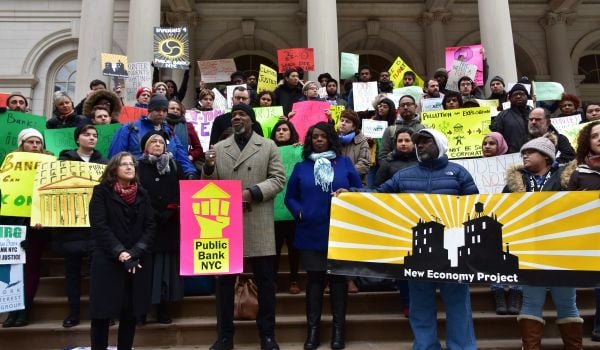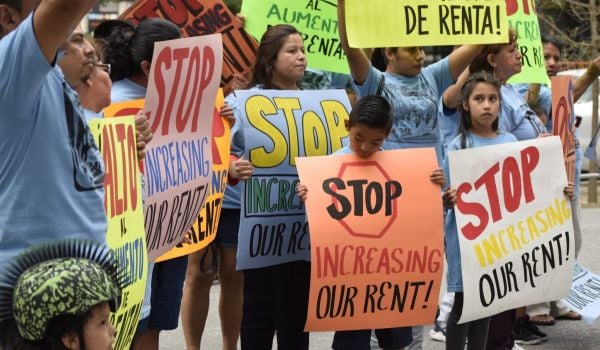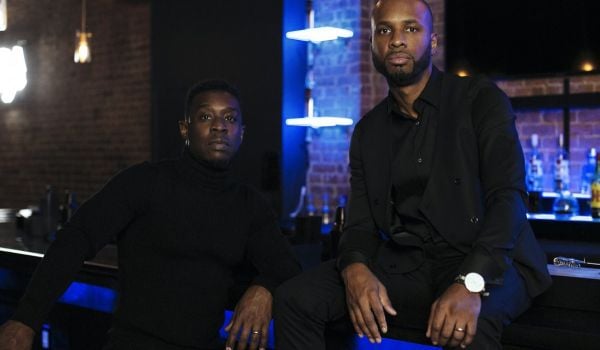It was the Valentine’s Day break-up heard ‘round the world. After a headline-grabbing yearlong competitive search to select a site for Amazon’s second headquarters (dubbed “HQ2”), after a competition where frustrated constituents watched elected leaders prostrate themselves and dangle massive tax incentives before the almighty trillion-dollar company, and after the surprise announcement a few short months ago of splitting HQ2 between two locations that seemed too obvious and didn’t even offer the largest incentive packages … Amazon announced yesterday they were canceling their plans to build half of HQ2 in Long Island City, Queens.
“While polls show that 70 percent of New Yorkers support our plans and investment, a number of state and local politicians have made it clear that they oppose our presence and will not work with us to build the type of relationships that are required to go forward with the project we and many others envisioned in Long Island City,” the company said in its announcement. The company also stated it was not planning to re-open the search for a site, instead stating it would grow where it already has offices or plans to build offices.
Some rejoiced at the news, citing fears and concerns about exacerbating the displacement of working-class residents and businesses, already over-crowded and chronically delayed public transit going through the neighborhood, and the secret negotiating process between the company, the city, and the state. Others bemoaned the loss of thousands of potential jobs, tax revenue, and the potential perception that NYC is no longer business-friendly. While it’s true polls showed most New Yorkers supported Amazon building part of HQ2 in the city, polls also indicated that New Yorkers were more divided on supporting the $3 billion in state and local incentives and grants that would have supported HQ2’s development.
In two public hearings and numerous events and interviews since the original Long Island City HQ2 selection announcement, NYC Council Members have been airing frustration around two central points. First, the negotiation completely circumvented the city’s standard land use decision-making process that would give the city council a strong negotiating position with veto power to shape the deal. And second, the combined $3 billion in city and state incentives to one of the world’s richest companies were hard to swallow, in light of the fact that the city and state have faced criticisms for not spending enough to maintain public transit, public housing, schools and other municipal needs.
Newly-installed NY State Senate Majority Leader Andrea Stewart-Cousins may have hammered the final nail in the coffin, nominating State Senator Michael Gianaris to serve on an otherwise obscure state body known as the Public Authorities Control Board, with three voting members who each have veto power over project-related state financing. All three members must vote to approve state grants for development, including about $505 million of the $3 billion promised to Amazon. Gianaris represents the area where Amazon would have built in Queens, and since the original HQ2 announcement has been one of the most vocal speaking out against the deal — despite the fact that he was one of nearly 80 elected officials who signed an open “love letter” to Amazon in October 2017 inviting and encouraging them to bring HQ2 to NYC.
NY Governor Andrew Cuomo, who once offered to change his name to ‘Amazon Cuomo,’ could have blocked Gianaris’ appointment to the body, but that would have set up a major standoff with the first Democrat-controlled state legislature in years, which would not bode well for anything Cuomo might want to achieve at the start of his third term and rumored 2020 presidential campaign aspirations.
Cuomo blamed “a small group of politicians for putting their own interests ahead of their community,” according to WABC Eyewitness News.
The HQ2 deal had been one of the rare areas where Cuomo and NYC Mayor Bill De Blasio were in agreement — the two are more typically fighting over whose responsibility it is to fix NYC’s subways, public housing or school system. Whether it was the clear and public frustration of city council being denied its chance to have a real say in the deal that swayed De Blasio, or perhaps seeing an opportunity to distance himself from someone he has considered a rival, the mayor has since shifted his position and started decrying the secret negotiations with Amazon — negotiations that included members of his own administration.
“New York City gave Amazon a real opportunity here, and all we ask is that they be a good neighbor and be part of the community, and they weren’t ready to do that,” De Blasio told reporters before a speech at Harvard University yesterday, according to the station. “This was Amazon’s choice, and I think it was a huge mistake.”
Others saw a larger narrative than just a few self-interested politicians.
“Anything is possible: today was the day a group of dedicated, everyday New Yorkers & their neighbors defeated Amazon’s corporate greed, its worker exploitation, and the power of the richest man in the world,” tweeted Rep. Alexandria Ocasio-Cortez (D-NY), who represents another part of Queens, NYC.
“Today’s main lesson is clear: Community organizing works, and politicians ignore organized constituents at great risk,” said Greg LeRoy, executive director of Good Jobs First, a national watchdog group on economic development incentives, in a statement yesterday.
NYC Council Member Jimmy Van Bramer, who represents the area where Amazon would have built in Queens, has been alongside Gianaris as one of the most vocal opponents of the deal — though he, too, signed the October 2017 love letter to Amazon.
“When our community fights together, anything is possible, even when we’re up against the biggest corporation in the world. I am proud that we fought for our values, which is a fight for working families, immigrants, & organized labor,” tweeted Van Bramer yesterday.
In the public hearings held around HQ2, in which Amazon executives and city economic development leaders appeared before the City Council, Council Speaker Corey Johnson — the second most powerful elected city official after the mayor — established a clear tone of hostility toward the secret negotiations and circumventing of his body’s authority along the way to approving the deal.
Johnson also chose to echo sentiments expressed by New Yorkers at local community board hearings, about the perceived extravagance of including a helipad in the planned HQ2 complex.
“I look forward to working with companies that understand that if you’re willing to engage with New Yorkers and worth through challenging issues New York City is the world’s best place to do business,” Johnson said in a statement, according to City & State NY. “I hope this is the start of a conversation about vulture capitalism and where our tax dollars are best spent. I know I’d choose mass transit over helipads any day.”
Others, such as the New York Daily News Editorial Board and Columbia Professor Vishaan Chakrabarti, expressed opposing views, saying that the loss of HQ2 represents a tremendous loss for the city in terms of jobs, tax revenue and also diversifying the city’s economic base beyond Wall Street.
And yet, others have already reported on how one other tech sector giant has already announced plans to continue growing significantly in NYC — no subsidies asked.
Google announced in December plans for a billion-dollar expansion into more buildings on the west side of Manhattan, where it already occupies a major campus in Chelsea. While Google’s expansion hasn’t been 100 percent free of hiccups, “the relatively quiet rise of Google could not be more different than the approach taken by Amazon,” wrote reporters Winnie Hu and J. David Goodman at the New York Times.

Oscar is Next City's senior economic justice correspondent. He previously served as Next City’s editor from 2018-2019, and was a Next City Equitable Cities Fellow from 2015-2016. Since 2011, Oscar has covered community development finance, community banking, impact investing, economic development, housing and more for media outlets such as Shelterforce, B Magazine, Impact Alpha and Fast Company.
Follow Oscar .(JavaScript must be enabled to view this email address)
















